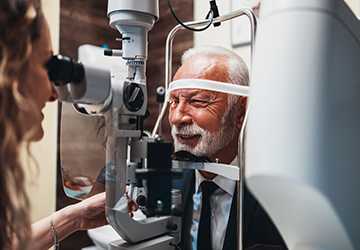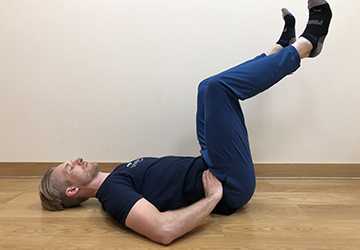4 Ways to Enhance Vision Health as You Age
Need help seeing? Do your eyes often feel tired? As we age, the health of our vision tends to decline. Driving at night becomes more complicated, and our eyes may become dry, itchy, or uncomfortable. This is frustrating, especially when healthy vision is critical to daily life. How do you maintain your independence when you can't see? But don't worry - there's a solution to every problem. This blog post explores four of the best ways to improve your vision. With simple solutions, you can see clearly and comfortably again. Learn more about these practical ways to enhance and protect your vision.
Let'sLet's start!

Improve your vision health before it's too late.
Protecting your eyesight will help you enjoy life's small pleasures again, like reading a great novel, watching the sunset, and looking at family photos. Can you imagine losing these joys? Sharp vision can keep you safe during essential tasks like driving, cooking, taking medications, and avoiding falls. Seeing where you are going reduces the likelihood of an accident. If you act now, you can prevent cataracts, glaucoma, or macular degeneration later. Would you rather deal with minor problems later than with serious eye problems? Now is the time to prioritize your vision health. Incorporate doctor-recommended tips into your daily life to enjoy a clear vision for years. So, let's read these options in detail.
Eat your fruits and vegetables.
You know they're generally good for you, but fruits and vegetables are crucial for healthy eyes as you age. Green leafy vegetables like spinach contain eye-friendly vitamins and nutrients like lutein and zeaxanthin. Other options include sweet potatoes, peppers, strawberries, oranges, and broccoli. Aim to eat a balanced number of fruits and vegetables every day. This healthy habit will nourish your eyes and the rest of your body.
Drink enough.
Here's a simple way to support eye health: Drink more water! When dehydrated, your eyes may feel irritated, dry, and tired. Proper hydration keeps them functioning well. Experts recommend eight cups a day. Water is best, but juices and smoothies can also help. When you meet your body's fluid needs, your eyes will feel refreshed.

Update your eyeglass prescription.
If it has been a year or more since your last eye exam, make an appointment with your optometrist. Vision changes may occur more frequently as we age, and outdated prescriptions can exacerbate eye strain, headaches, and strabismus. Your doctor will also check for cataracts, macular degeneration, and other age-related problems as part of a comprehensive exam. Catching problems early makes treatment easier. Protect your current and future vision with regular appointments.
Sleep more and better.
While you sleep, your eyes begin to repair and rehydrate themselves. However, many older adults require more sleep or wake up frequently at night, disrupting this critical process. Poor sleep can lead to eye health problems such as conjunctivitis, blurred vision, and light sensitivity. Aim for 7-9 hours a night and wake up time. Limit your exposure to blue light from TVs and devices at night. You'll wake up refreshed and with bright, sparkling eyes.
Start improving your vision today!
Take the ability to observe seriously. Follow all or some tips listed here to boost your eye health daily. As you age, your eyes will require extra care and attention. Get regular eye exams and seek immediate treatment if problems arise. Here's to a clear vision and a bright future for the future!





